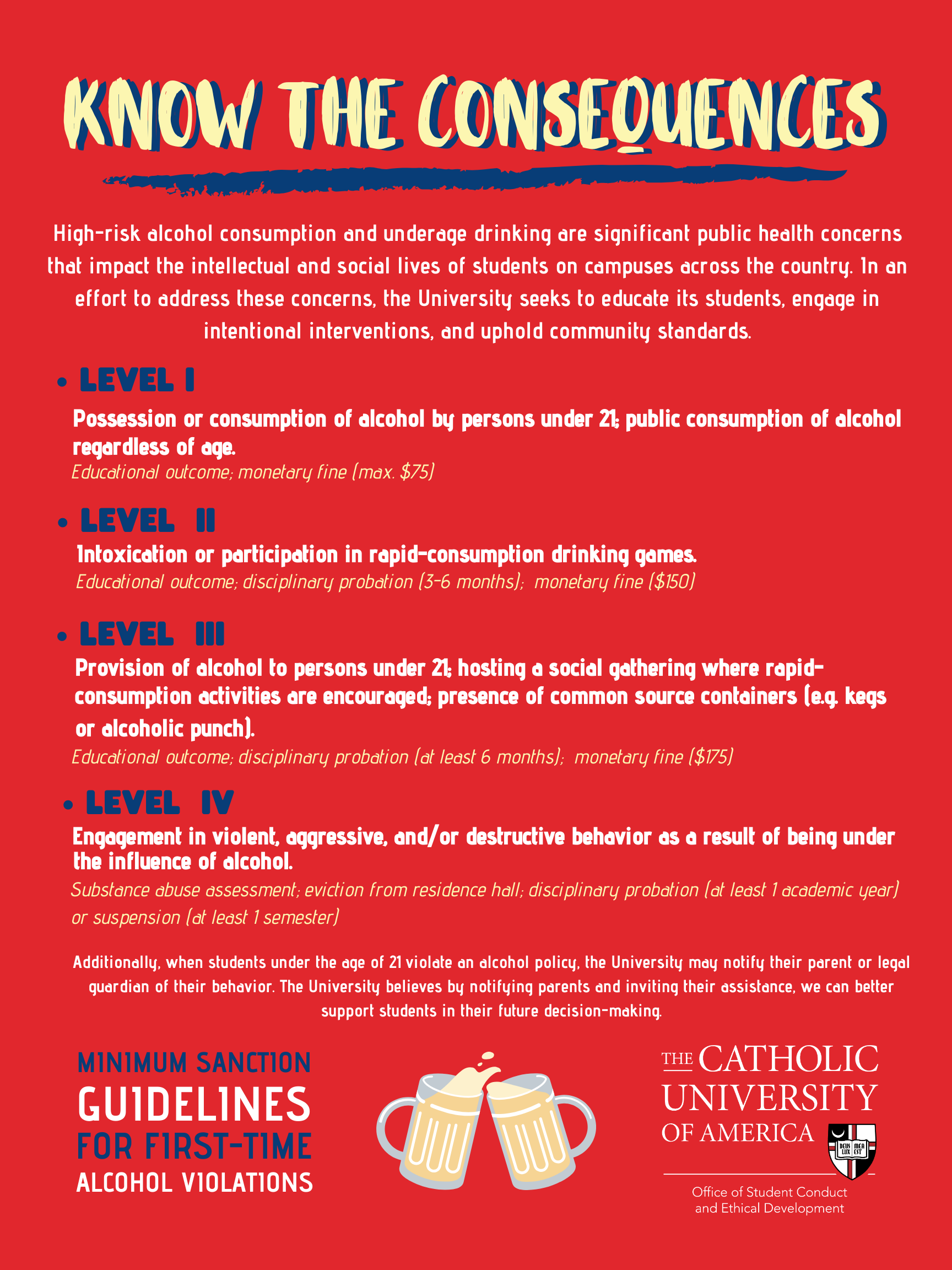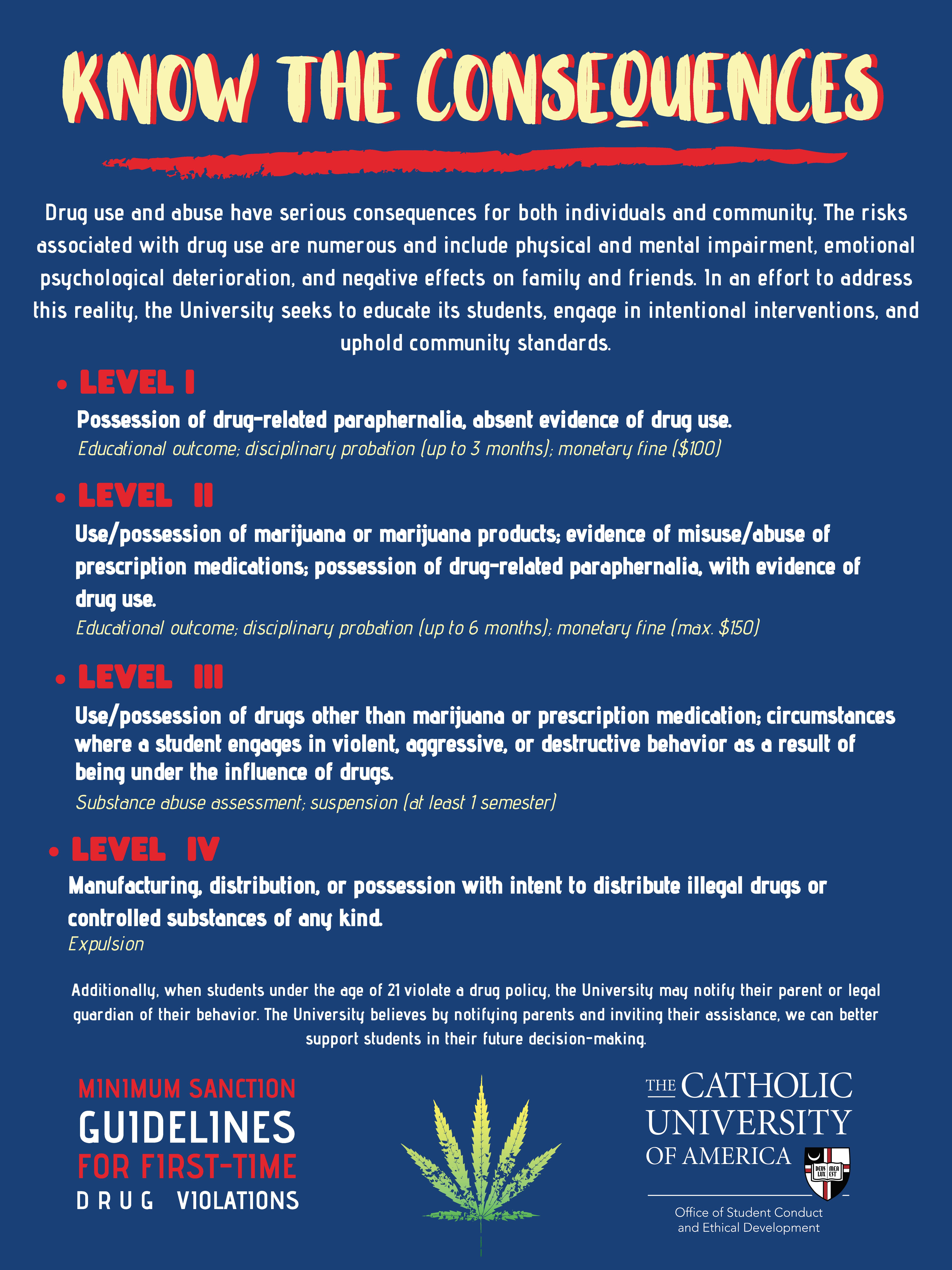Outcomes and Sanctions
After a student is found responsible for violating the Code of Student Conduct ("Code)," sanctions will be applied. Sanctions serve a variety of purposes and are educational in nature, which allow you to learn more about the expectations the university has for you.
Sanctioning at Catholic University is intended to accomplish the following educational goals:
- To provide an opportunity for you to learn from your involvement in a violation of the Code.
- To motivate you toward making better choices and decisions.
- To reinforce university expectations regarding appropriate behavior.
- To educate you about how inappropriate behavior impacts others in the university community.
- To protect the university community from persons who may harm others or are a danger to themselves.
- To educate you as to how inappropriate behavior impacts you.
- To emphasize civility and civil behavior.
- To instruct you as to how to settle conflicts appropriately.
- To ensure conflict does not interfere with the educational mission of the University.
Part III, Section V (C) of the Code
Please refer to the Code of Student Conduct for more information about the sanctions listed below.- Censure: An official written reprimand for violation of specified regulations.
- Disciplinary Probation: A period of time in which a student is expected to demonstrate positive behavioral change and may be excluded from participation in privileged or extracurricular institutional activities. Additional restrictions or conditions for behavioral changes may be imposed. Violations of the terms of student conduct probation, or any other violation of this Code during the period of disciplinary probation, may result in eviction from residence, suspension or expulsion from the University. While on disciplinary probation, the student is not in good disciplinary standing with the University.
- Restitution: Repayment to the University or to an affected party for damages resulting from a violation of this Code.
- Denial of Access to Specific Areas: Ban from certain non-academic area(s) for a specified length of time.
- Eviction from Residence: Termination of the residence hall agreement and exclusion from visiting within certain or all residential facilities, as set forth in the notice of eviction, for a specified period of time. A student who is evicted is not entitled to a refund of room fees. A student who is required to live on campus and is evicted from residence is unable to fulfill residency requirements and may be suspended, upon review.
- Revocation of Privileges: Restrictions placed on activities and/or use of University services and facilities for a specified period of time.
- Suspension: Exclusion from classes and other privileges or activities, including access to University premises or University-sponsored activities off campus, as set forth in the notice of suspension, normally for at least one semester. A student who is suspended is not entitled to any tuition or fee refund and is banned from University premises for the duration of the suspension.
- Expulsion: Termination of student status, and exclusion from University premises, privileges and activities. A student who is expelled shall not be entitled to any tuition or fee refund and is banned from University premises permanently.
- Discretionary Sanctions: Other sanctions that bear a reasonable relation to the violation for which the student has been sanctioned may be imposed instead of or in addition to those specified above. Discretionary sanctions include, but are not limited to: service hours, fines, educational reflection assignments, and participation in alcohol or drug awareness programs, and trainings, counseling and education regarding sexual assault and offenses.
Minimum Sanctioning Guidelines for First-Time Alcohol & Drug Offenses
 |
|

